- Home
- Conn Iggulden
Genghis Lords of the Bow Page 5
Genghis Lords of the Bow Read online
Page 5
“You seem cheerful, Khasar,” Barchuk observed as he guided the cart around a hump in the grass. The older man was wiry with strength and his eyes seemed constantly amused.
“I was thinking that we have never before come together, lord. Always there has been some blood feud or Chin bribery to keep us at each other's throats.” He waved an arm to encompass the camp on the plain. “This? This is a new thing.”
“It may end in destruction for our people,” Barchuk murmured, watching him closely.
Khasar grinned. He remembered Kachiun and Genghis debating the same point and he echoed their words. “Yes, but not one of us, not one man, woman, or child, will be alive in a hundred years. Everyone you see here will be bones.”
He saw Barchuk frown in puzzlement and wished he had Kachiun's ability to speak as he went on.
“What is the purpose of life if not to conquer? To steal women and land? I would rather be here and see this than live out my life in peace.”
Barchuk nodded. “You are a philosopher, Khasar.”
Khasar chuckled. “You are the only one who thinks it. No, I am the geat khan's brother and this is our time.”
CHAPTER 3
BARCHUK OF THE UIGHURS SPOKE FOR HOURS as the sun set outside the great ger. Genghis was fascinated by the man's knowledge, and if he came across a concept he did not understand, he made the khan go over and over it until the meaning was clear.
Of all subjects, anything to do with the Chin had Genghis leaning forward in his seat like a hawk, his eyes bright with interest. The Uighurs had come from land to the far southwest, bordering the Gobi Desert and the Chin kingdom of Xi Xia. Genghis reveled in every detail Barchuk could provide of Chin trade caravans, their dress and customs, and, most of all, their weapons and armor. It was true that merchants may not have had the best of guards, but each scrap of information fell upon the desert of Genghis's imagination like spring water, vanishing deep.
“Peace has brought you wealth and security,” Genghis said as Barchuk paused to clear his throat with a gulp of tea. “Perhaps you could have approached the king of the Xi Xia to ally against me. Did you consider it?”
“Of course,” Barchuk replied, disarming him with honesty. “But if I have given you the impression of their friendship, it is false. They trade with us because they have markets for the skins of snow leopards from the mountains, for hard woods, even seeds of rare plants to aid them in their study of healing. In return, they sell us raw iron, carpets, tea, and sometimes a scroll they have already copied many times.” He paused and smiled wryly at the gathering of men. “They bring their litters and their guards into Uighur towns, but their distaste can be read on every face, even those they call slaves.” The memories had brought a flush of irritation to his face and he wiped his brow before continuing. “Since I have learned their language, I know them too well to ask for support. You have to see them to understand, lord. They care nothing for those who are not Xi Xia subjects. Even the Chin regard them as a separate people, though they share many of the same customs. They pay tribute to the Chin emperor and, though under his protection, still consider themselves apart from their powerful neighbor. Their arrogance is colossal, lord.”
Barchuk leaned forward, reaching out to tap Genghis on his knee. He did not seem to notice the way the surrounding men bristled.
“We have had their scraps for many generations, lord, while they kept the best meat behind their forts and walls.”
“And you would see them broken,” Genghis murmured.
“I would. All I ask is that their libraries are turned over to the Uighur for study. In addition, we have seen rare gems and a stone that is like milk and fire. They do not trade such items no matter what we offer.”
Genghis watched the khan closely as he spoke. Barchuk knew he had no right to demand spoils from war. The tribes were not paid to fight and anything they won or looted was theirs by tradition. Barchuk asked a great deal, but Genghis could not think of another group who might want the libraries of the Xi Xia. The very idea made him want to smile.
“You may have the scrolls, Barchuk. My word on it. Anything else goes to the victors and is in the hands of the sky father. I can give you no special claim.”
Barchuk sat back and gave a reluctant nod. “It is enough, with everything else we will win from them. I have seen my people ridden down in the road by their horses, lord. I have seen them starve while the Xi Xia grew fat on crops they would not share. I have brought my warriors to extract a price for their arrogance and our towns and fields are empty behind us. The Uighur are with you, gers, horses, salt, and blood.”
Genghis reached out and the two men bound the oath with a quick clasp that hid the seriousness of such a declaration. The tribes waited outside the ger and Genghis would demand a similar oath from them all as soon as he was ready. To offer it in private was a demonstration of support that Genghis did not treat lightly.
“I ask one thing of you, Barchuk, before we go out to them,” he said.
Barchuk paused in the middle of rising and his face became a mask as he realized the talk was not over.
“My youngest brother has expressed an interest in learning,” Genghis said. “Stand, Temuge, where he can see you.” Barchuk looked round at the slender young man who rose and bowed to him. He acknowledged the gesture with a stiff dip of his head before turning back to Genghis.
“My shaman, Kokchu, will lead him in this, when the time comes, but I would like them to read and learn whatever they think is worthwhile. I include the scrolls you already own as well as any we might win from our enemies.”
“The Uighurs are yours to command, lord,” Barchuk said. It was not too much to ask and he did not understand why Genghis seemed ill at ease bringing up the subject. Temuge beamed at his back and Kokchu bowed his head as if he had received a great honor.
“It is settled, then,” Genghis said. His eyes were shadowed, flickering in the lamps that had been lit against the evening gloom. “If the Xi Xia are as rich as you say, they will be the first to see us on the move. Will the Chin support them?”
Barchuk shrugged. “I cannot say for certain. Their lands border one another, but the Xi Xia have always been separate in their kingdom. The Chin may raise an army against you to counter any later threat. Or they may let them die to the last man without lifting a hand. No one can say how their minds work.”
Genghis chuckled. “If you had told me ten years ago that the Kerait were facing a great host, I would have laughed and counted myself lucky not to be in the path of the battle. Now I call them brothers. It does not matter if the Chin come against us. If they do, I will break them all the faster. In truth, I would rather face them on a plain than have to climb the walls of their cities.”
“Even cities can fall, lord,” Barchuk said softly, his own excitement mounting.
“And they will,” Genghis replied. “In time, they will. You have shown me the underbelly of the Chin in these Xi Xia. I will gut them there and then pull their heart out.”
“I am honored to serve, lord,” Barchuk replied. He stood and bowed low, holding the pose until Genghis made a gesture for him to rise.
“The tribes have assembled,” Genghis said, standing and stretching his back. “If we are to cross the desert, we will need to collect water and feed for the horses. Once I have the oath, there is nothing more holding us to this place.” He paused for a moment.
“We came here as tribes, Barchuk. We leave as a nation. If you are recording events in those scrolls as you describe, be sure to write that.”
Barchuk's eyes shone, fascinated by the man who commanded the great host. “I will see it done, lord. I will teach the script to your shaman and your brother that they might read them to you.”
Genghis blinked in surprise, intrigued at the image of his brother repeating words trapped on stiff calfskin.
“It would be interesting to see such a thing,” he said. He took Barchuk by the shoulder, giving him honor by letting him leave the great
ger in his company. The generals fell in behind. Outside, they could hear the hushed murmur of the gathered tribes as they waited for the one who would lead them.
Even in the summer darkness, the camp glowed yellow under the stars, lit by ten thousand fluttering flames. The center had been cleared in a vast ring around the ger of Genghis, and the warriors of a hundred factions had left their families to stand together in the flickering light. From one man to the next, their armor could be a piece of stiff leather or the helmets and neat sets of iron scales copied from the Chin. Some carried the stamp of their tribes, while most were blank, showing that they were new and that there was only one tribe under the sky. Many of them held swords, fresh from the forges that had been working night and day since coming to the plain. Huge holes had been dug by sweating men under the sun while others carted ore back to the flames and watched in excitement as the swordsmiths turned out weapons they could hold. More than one man had burned his fingers reaching for them before they had cooled properly, but they had never dreamed of owning a long blade and they did not mind.
The wind always blew across the plain, but that evening the breeze was gentle as they waited for Genghis.
When the khan came out, Barchuk of the Uighurs was guided down the steps of the cart and stood in the first rank around the wheels of wood and iron. Genghis stood for a moment, looking over the heads of the crowd and marveling at the size of it. His brothers, Arslan and Jelme, and last the shaman, Kokchu, stepped down from the height, each one pausing to take in the ranks stretching away in pools of light.
Then he was alone and he closed his eyes for a moment. He gave thanks to the sky father for bringing him to that place, with such an army to follow him. He said a few brief words to the spirit of his father in case that man could see him. Yesugei would be proud of his son, he knew. He had broken new ground for his people, and only the spirits could tell where the path would end. As he opened his eyes he saw Borte had brought his four sons to stand in the front rank, three of them too young to be left on their own. Genghis nodded sharply to them, his gaze lingering on the eldest, Jochi, and Chagatai, whom he had named after the shaman of the Wolves. At almost nine, Jochi was in awe of his father and he lowered his eyes, while Chagatai merely stared, his nervousness obvious.
“We came here from a hundred different tribes,” Genghis roared. He wanted his voice to carry, but even a throat trained on the field of battle could only reach so far. Those who could not hear would have to follow the lead of those who could.
“I have brought Wolves to this plain, Olkhun'ut and Kerait. I have brought Merkit and Jajirat, Uirat and Naimans. Woyela have come here, Tuvan, Uighurs and Uriankhai.” As he named each group, there was a stir from where they sat. He noticed how they remained together even for that night. There would be no easy assimilation for those who counted tribal honor above all else. It did not matter, he told himself. He would raise their gaze higher. His memory was faultless as he named each tribe that had ridden to join him in the shadow of the black mountain. He left no one out, knowing that the omission would be noted and remembered.
“More, I have called those who had no tribe,” he went on, “but still had honor and heeded the call of blood to blood. They rode to us in trust. And I say to you all, there are no tribes under the sky father. There is only one Mongol nation and it begins this night, in this place.”
Some of those who listened cheered, while others remained stony-faced. Genghis kept the warrior's mask on his own features. He needed them to understand there was no loss of honor in what he asked.
“We are brothers in blood, separated too long ago for anyone here to know. I claim a greater family of all tribes, a blood tie to you all. I call you as brothers to my standard and we will ride as one family, one nation.” He paused, judging the response. They had heard the idea before, whispered in the gathering from tribe to tribe. Still, it shook them to hear it from him. The bulk of the men did not cheer, and he had to crush a sudden spike of irritation. The spirits knew he loved them, but his own people were maddening at times.
“We will pile spoils enough to equal the mountain at your backs. You will have ponies and wives and gold, oils and sweetmeats. You will take lands for your own and you will be feared wherever they hear your names. Every man here will be a khan to those who bow to him.”
They cheered that, at least, and Genghis risked a small smile, pleased he had found the right tone. Let the lesser khans worry about the ambition of those around them. He meant every word of it.
“To the south is the great desert,” he called to them. Silence fell on the instant and he could feel their attention like a force. “We will cross it at a speed the Chin kingdoms cannot imagine. We will fall on the first of them like wolves on lambs and they will scatter before our swords and bows. I will give you their riches and their women for your own. That is where I will plant my standard, and the ground will shake as I do. The earth mother will know her sons and brothers have found their inheritance and she will rejoice to hear thunder on the plains.”
The cheering came again and Genghis raised his arms for quiet, though it pleased him.
“We will ride into the dry country, taking all the water we need for one sudden strike. After that, we will not stop until the sea bounds us in every direction. I am Genghis who say this and my word is iron.”
They roared in appreciation and Genghis snapped his fingers at Khasar, who stood waiting on the ground below. Khasar handed up a heavy pole of silver birch onto which eight horse tails had been tied. The crowd murmured as they saw it. Some recognized the black of the Merkit, or the red tail of the Naimans, bound with the others. Every one of them had been the khan's standard for one of the great tribes, and Genghis had them all on the plain. As he took the staff, Khasar handed up a horse tail dyed with Uighur blue.
Barchuk's eyes narrowed at this most potent of symbols, but with the host at his back, he was still filled with excitement and the vision of the future. As he felt Genghis's eyes flicker over him, he bowed his head.
With nimble fingers, Genghis bound the tip of the last horse tail to the others and planted the butt on the wood at his feet. The breeze caught the colored standard, so that the tails whipped and twisted as if alive.
“I have bound the colors,” he called to them. “When they are bleached white, there will be no difference between them. They will be the standard of a nation.” At his feet, his officers raised their swords and the host responded, caught up in the moment. Thousands of weapons jabbed the sky and Genghis nodded to them, overwhelmed. It took a long time for the noise to end, though he held up his free hand and patted the air with it.
“The oath you will take is binding, my brothers. Yet it is no stronger than the blood that binds us already. Kneel to me.”
The front ranks dipped immediately and the rest followed in ripples outward as they saw what was happening. Genghis watched closely for hesitation, but there was none. He had them all.
Kokchu climbed the steps back up to the cart, his expression carefully blank. In his wildest ambition, he had not dreamed of such a moment. Temuge had put in the word for him, and Kokchu congratulated himself on bringing the young man to the point where he would make the suggestion.
As the tribes knelt Kokchu reveled in his status. He wondered if Genghis had considered he would be the only one amongst them who did not take the oath. Khasar, Kachiun, and Temuge knelt on the grass with all the others, khans and warriors alike.
“Under one khan, we are a nation,” Kokchu called over their heads, his heart pounding in excitement. The words echoed back to him, filling the valley in waves as those behind repeated them. “I offer gers, horses, salt, and blood, in all honor.”
Kokchu gripped the railing of the cart as they chanted. After that night, they would all know the shaman to the great khan. He glanced upwards as the words came in surges from further and further back. Under those clear skies, the spirits would be writhing in wild and simple joy, unseen and unfelt by anyone but the
most potent of his calling. In the chant of thousands, Kokchu sensed them swirling in the air and he exulted. At last the tribes fell silent and he let out a long breath.
“Now you, shaman,” Genghis murmured at his back. Kokchu started in surprise, before falling to his knees and repeating the same oath.
When Kokchu had rejoined the others around the cart, Genghis drew his father's sword. For those who could see, his eyes glittered with satisfaction.
“It is done. We are a nation and we will ride. Tonight, let no man think of his tribe and mourn. We are a greater family and all lands are ours to take.”
He dropped his arm as they bellowed, this time as one. The smell of roasting mutton was strong on the breeze, and his step was light as the warriors prepared for a night of drink and enough food to make their bellies swell. There would be a thousand children begun by drunken warriors before dawn. Genghis considered returning to Borte in his tent and masked the discomfort at the thought of her accusing eyes. She had done her duty to him, no man could deny it, but the paternity of Jochi remained a doubt, like a thorn in his skin.
He shook his head to clear it of idle thoughts and accepted a skin of black airag from Kachiun. Tonight he would drink himself to insensibility, as khan to all the tribes. In the morning, they would prepare to cross the dry lands of the Gobi Desert and walk the path he had chosen for them.
CHAPTER 4
THE WIND SCREAMED AROUND THE CARTS, carrying a fine mist of sand that made the men and women spit constantly and wince at the grit in their food. Flies tormented them all, tasting the salt from their sweat and leaving red marks where they had bitten. During the day, the Uighurs had shown them how to protect their faces with cloth, leaving only their eyes to peer out at the bleak landscape, shimmering with heat. Those who wore armor found their helmets and neckpieces too hot to touch, but they did not complain.

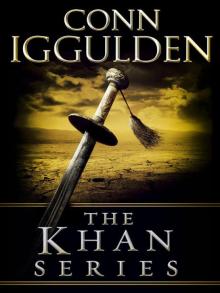 The Khan Series 5-Book Bundle
The Khan Series 5-Book Bundle Tollins 2: Dynamite Tales
Tollins 2: Dynamite Tales Tollins: Explosive Tales for Children
Tollins: Explosive Tales for Children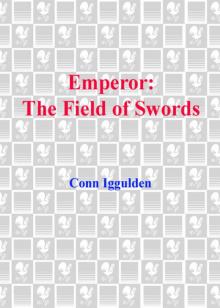 The Field of Swords
The Field of Swords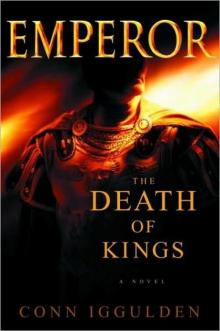 The Death of Kings
The Death of Kings Quantum of Tweed: The Man With the Nissan Micra
Quantum of Tweed: The Man With the Nissan Micra Bones of the Hills
Bones of the Hills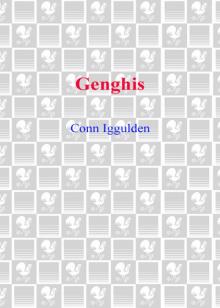 Genghis: Birth of an Empire
Genghis: Birth of an Empire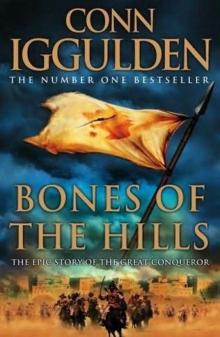 The Gates of Rome
The Gates of Rome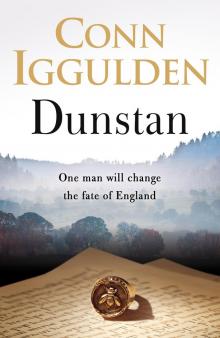 Dunstan
Dunstan Fig Tree
Fig Tree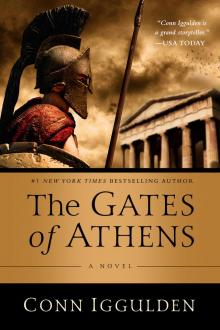 The Gates of Athens
The Gates of Athens Stormbird
Stormbird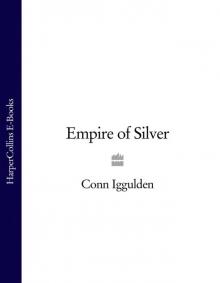 Khan: Empire of Silver
Khan: Empire of Silver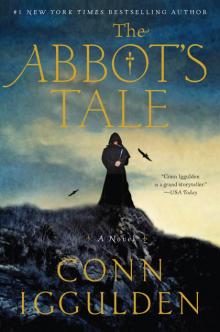 The Abbot's Tale
The Abbot's Tale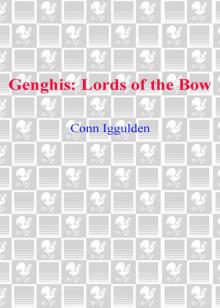 Gengis: Lords of the Bow
Gengis: Lords of the Bow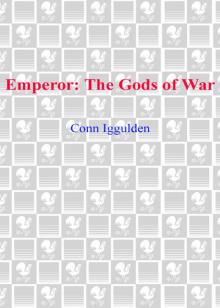 The Gods of War
The Gods of War Blackwater
Blackwater Ravenspur: Rise of the Tudors
Ravenspur: Rise of the Tudors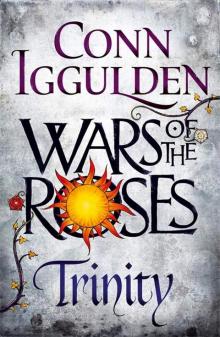 Wars of the Roses: Trinity (War of the Roses Book 2)
Wars of the Roses: Trinity (War of the Roses Book 2) The Gods of war e-4
The Gods of war e-4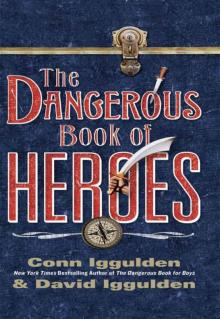 The Dangerous Book of Heroes
The Dangerous Book of Heroes Stormbird wotr-1
Stormbird wotr-1 Emperor: The Death of Kings
Emperor: The Death of Kings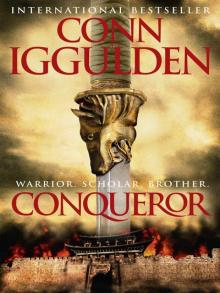 Conqueror (2011) c-5
Conqueror (2011) c-5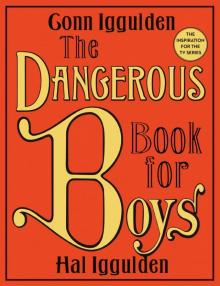 The Dangerous Book for Boys
The Dangerous Book for Boys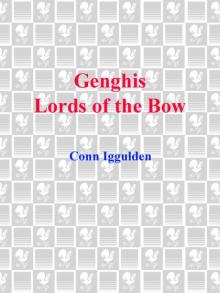 Genghis Lords of the Bow
Genghis Lords of the Bow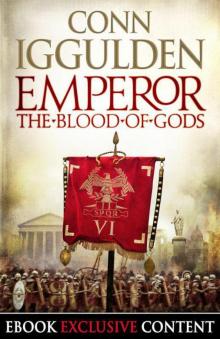 Emperor: The Blood of Gods (Special Edition) (Emperor Series, Book 5)
Emperor: The Blood of Gods (Special Edition) (Emperor Series, Book 5) The Emperor Series: Books 1-5
The Emperor Series: Books 1-5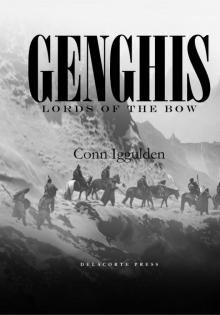 Lords of the Bow c-2
Lords of the Bow c-2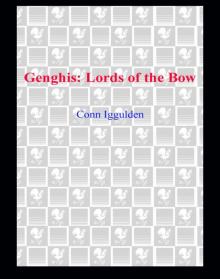 Lords of the Bow
Lords of the Bow Quantum of Tweed
Quantum of Tweed Wars of the Roses 01 - Stormbird
Wars of the Roses 01 - Stormbird Empire of Silver c-4
Empire of Silver c-4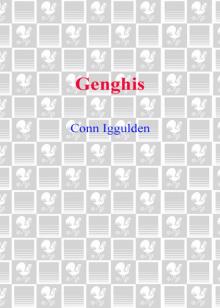 Birth of an Empire
Birth of an Empire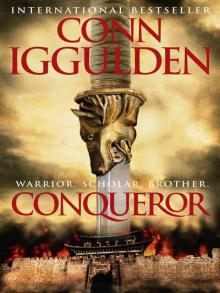 Conqueror (2011)
Conqueror (2011) Wars of the Roses: Bloodline: Book 3 (The Wars of the Roses)
Wars of the Roses: Bloodline: Book 3 (The Wars of the Roses) Bones Of the Hills c-3
Bones Of the Hills c-3 Empire of Silver
Empire of Silver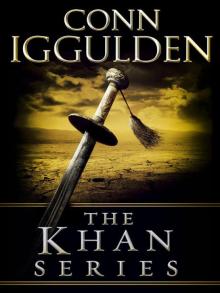 The Khan Series 5-Book Bundle: Genghis: Birth of an Empire, Genghis: Bones of the Hills, Genghis: Lords of the Bow, Khan: Empire of Silver, Conqueror
The Khan Series 5-Book Bundle: Genghis: Birth of an Empire, Genghis: Bones of the Hills, Genghis: Lords of the Bow, Khan: Empire of Silver, Conqueror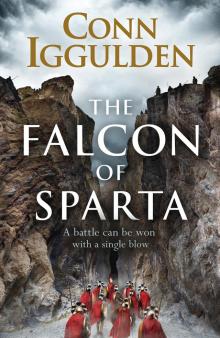 The Falcon of Sparta
The Falcon of Sparta Explosive Tales for Children
Explosive Tales for Children